The Colorado Rockies, Denver Spurs, and Hockey Before the Avalanche
Denver’s professional hockey history began in 1949 when the Denver Falcons hit the ice in the United States Hockey League (USHL), a junior hockey circuit for players 16 to 21 years of age. The team folded in 1952.
Top-level minor league hockey arrived in the city in 1959 with the establishment of the Denver Mavericks of the International Hockey League (IHL). That team, though, lasted only 34 days before moving to Minneapolis to become the Millers.
In 1963, the Western Hockey League (WHL), also at the top level of minor league hockey, placed a team in Denver called the Denver Invaders, a farm team of the Toronto Maple Leafs, who also owned the club. The Invaders were a huge success on the ice, winning more games than any team in the league during the regular season. However, they were eliminated by the Los Angeles Blades in the first round of the play-offs. Despite their winning ways, the team averaged only 3,000 fans a game. After failing to meet a goal of 2,000 season tickets for the 1964-65 season, the Maple Leafs flooded the team.
The city had another go in the WHL in 1968 with the Denver Spurs, a team that found success both on the ice and at the ticket window--- eventually. After struggling in their first two seasons (23-44-7 and 24-37-11), the team managed to make the 1971 playoffs but lost in the first round. The following season, the team notched a 44-28-8 record and won the league championship.
Meanwhile, in the world of major league hockey, two leagues were competing for players, fans, and TV deals. It was the established National Hockey League (NHL) versus the World Hockey Association (WHA), the latter having debuted in 1972. Both leagues were expanding into new cities, and Denver desperately hoped to join the ranks of the NHL.
The WHL folded in 1974 largely due to the depletion of available talent and the loss of several strong markets to the NHL and WHA (sometimes both). For the 1974-75 season, the Spurs joined the Central Hockey League. It was at this time the Spurs were granted conditional entry into the NHL (along with Seattle) for the 1976 season.
However, with several teams struggling, notably the California Golden Seals, who joined the league in 1967, and the Kansas City Scouts, who had just come onboard in 1974, the NHL canceled its 1976 expansion plans. Seattle tried getting the Pittsburgh Penguins to move to the Pacific Northwest, but local investors kept the team in Western Pennsylvania.
After a failed attempt to acquire the assets of the Golden Seals, the Spurs opted to join the rival WHA instead, with disastrous results. At the end of December 1975, the team had a record of 13-20-1, good for last place in the Western Division.
While the Spurs stumbled along, the NHL continued its efforts to place a team in Denver, with the Scouts the leading candidates. In response, the Spurs owner, Ivan Mullenix, brokered a deal to sell the team to a group from Ottawa. The team was moved to the Canadian capital and renamed the Civics but folded mid-January because a deal could not be finalized.
Back in Denver, things were looking up. The Kansas City Scouts moved to town for the 1976-77 season, while the Golden Seals moved to Cleveland. The Scouts were renamed the Colorado Rockies, while the Seals became the Cleveland Barons. The Rockies home was the brand new McNichols Arena.
The positive energy was short-lived as the Rockies struggled in the standings and at the gate. The only good news was that the Barons were in even worse shape, meaning Denver got the slightly better team in the shuffle--but not much better,
While the Barons were merged into the also troubled Minnesota North Stars in 1978 after just two seasons, the Rockies managed to play six seasons in Denver. They limped into the Stanley Cup playoffs only once. With a record 21 games below .500 they were quickly dispatched in two games by the Philadelphia Flyers.
The moving vans pulled up to McNichols Arena in 1982, and the team headed to the Garden State to become the New Jersey Devils, a deal that had been in the works since 1978.
That fall, the Colorado Flames took up residence in McNichols Arenas and stayed for two Central Hockey League seasons. After three years without pro hockey, Denver welcomed back the IHL in the form of the Colorado Rangers, named for the state’s top law enforcement agency. They became the Denver Rangers a season later and folded at the end of that campaign.
In 1994, the IHL returned with the Denver Grizzlies, who wasted no time in winning the Turner Cup, the IHL championship, while drawing 12,000 fans a game in their first and only year. While the Grizzlies were tearing up the IHL, an NHL team was eyeing the Mile High City.
The Quebec Nordiques, who were one of four WHA teams absorbed by the NHL in 1978, were in trouble. A competitive team with a fiercely loyal fan base, the club struggled financially for years in North America’s second-smallest pro sports market.
Unable to obtain financial assistance from the province of Quebec, including a new arena, the team’s owner sold the franchise to COMSAT Entertainment, who moved the club to Denver. Fans in Colorado responded by buying 12,000 season tickets. The city’s IHL team packed up and headed west to Salt Lake City to become the Utah Grizzlies.
The newly named Colorado Avalanche found success immediately, similar to the Grizzlies first season in town, winning the Stanley Cup. They won it again in 2001 and have become one of the NHL’s most beloved and successful franchises.


